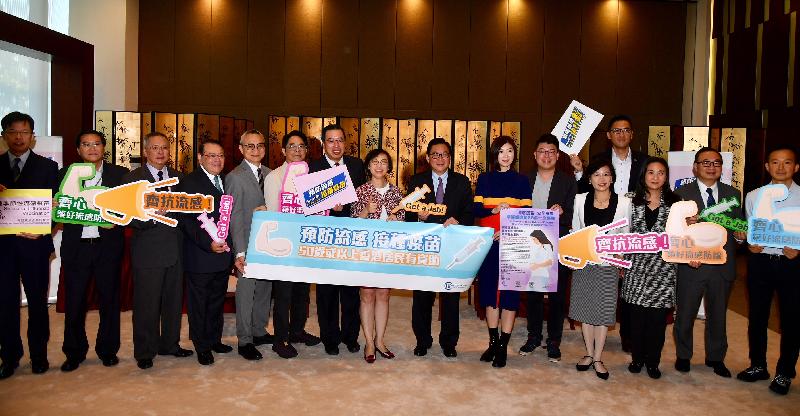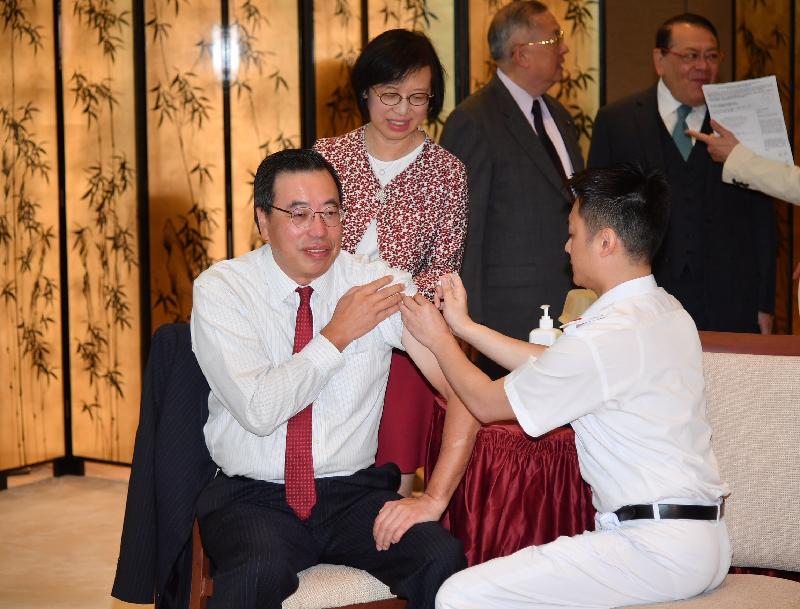LCQ15: Compilation of statistics on mortgage loans
Following is a question by the Hon Wu Chi-wai and a written reply by the Secretary for Financial Services and the Treasury, Mr James Lau, in the Legislative Council today (November 21):
Question:
The Hong Kong Monetary Authority (HKMA) indicated that the debt-servicing ratio (DSR) for the new residential mortgage loans (RMLs) approved in the second quarter of this year was 34 per cent, and that this ratio had factored in the repayments for all additional mortgage loans obtained by the borrowers from third parties other than banks (third-party mortgages). However, HKMA’s data on third-party mortgages were not directly provided by the finance companies offering such mortgage loans, but were estimations based on figures provided by banks and outcome of sampling checks on the land records. In this connection, will the Government inform this Council:
(1) of the number of cases in which the borrowers were granted mortgages on the same residential property both by a bank and by a third party/third parties, the amount of the loans involved and the percentage of such amount in the total amount of new RMLs approved throughout the year, in each of the past three years, as well as the average (i) loan-to-value (LTV) ratio, (ii) loan amount and (iii) DSR in respect of those cases; the average (iv) LTV ratio and (v) loan amount of the third-party mortgages involved in those cases;
(2) in respect of the new RMLs approved in each of the past three years by (i) banks and (ii) finance companies not associated with banks and developers, whether it knows (a) the number of such loans, (b) the total amount of loans involved, (c) the average LTV ratio and loan amount, and (d) the average, the highest and the lowest interest rates charged;
(3) whether it knows the following details of the new RMLs approved in each of the past three years by finance companies under developers:
(i) the number and total amount of such loans, with a breakdown by LTV ratio, interest rate and whether or not income tests were conducted;
(ii) the average, the highest and the lowest interest rates charged; and
(iii) the average DSR;
if not, whether the Government will request the finance companies concerned to submit such information direct or through the banks;
(4) as the interest rates charged on the mortgage loans provided by finance companies under developers will usually be raised substantially after a number of years, whether HKMA has grasped the situation where the borrowers concerned have applied to banks for remortgaging/loan refinancing for full repayments of the mortgage loans provided by such finance companies; if so, of the respective numbers of such applications received, approved and rejected by banks in each of the past three years; if not, whether HKMA will request the banks to compile and provide such statistics; and
(5) of the details of the sampling checks on the land records conducted by HKMA (including the sampling method and proportion); whether HKMA will consider conducting a comprehensive check on all the land records in respect of the transactions in the past three years of newly completed residential properties, so as to fully grasp the data on third-party mortgages; whether it has assessed the impacts of this type of mortgages on the stability of the property market and the banking system; if so, of the outcome; if not, whether it will conduct such an assessment expeditiously?
Reply:
President,
Since October 2009, the Hong Kong Monetary Authority (HKMA) has introduced eight rounds of countercyclical macroprudential measures for property mortgage loans to strengthen the risk management of banks and the resilience of the Hong Kong banking sector to cope with possible downward adjustments of property prices. These measures include: lowering the caps on loan-to-value (LTV) ratios and limits on debt servicing ratios (DSR) for property mortgage loans; applying stress testing on mortgage applicants’ repayment ability in the face of rising interest rates; and requiring banks to hold more capital against their residential mortgage portfolios. Our reply to different parts of the question is as follows:
(1) The HKMA regularly collects from banks data on residential mortgage loans (RMLs), which include the value of the mortgage loans approved by banks and the number of mortgage loans involving co-financing arrangements. However, the HKMA does not collect data on the value of the second mortgages granted by other companies. For example, in the first three quarters of 2018, banks approved a total of 1 913 RMLs involving co-financing arrangements, amounting to 2.2 per cent of total new RMLs approved, with an aggregate value of HK$10.1 billion, representing 2.8 per cent of total new RMLs approved. Please refer to the Table 1 of the Annex for detailed figures in the past three years.
In respect of RMLs involving co-financing arrangements, the HKMA collects only data on the mortgage loans granted by banks. As such, it is unable to provide data on the overall value of second mortgages. It should be noted that under the HKMA’s supervisory guideline, banks are required to take into account all the monthly debt obligations of borrowers when calculating their DSRs, including the total monthly repayment of second mortgages.
Furthermore, the above-mentioned figures reflect only second mortgages which have been reported by the borrowers to banks. There have been cases where mortgage borrowers may have further mortgaged their properties without seeking prior consent from the mortgagee banks. In order to facilitate banks’ better management of their risks, the HKMA, in collaboration with the Land Registry (LR), introduced a mortgage e-Alert Service for banks in February 2017. By subscribing to this service, banks will receive electronic notifications from the LR when further mortgage documents in respect of the properties mortgaged to the banks concerned are lodged for registration with the LR. If a bank finds that a customer has breached the mortgage deed by obtaining further mortgage without seeking the bank’s prior consent, the bank can follow up with the customer and take appropriate risk mitigating measures.
(2) and (3) Figures on new RMLs approved by banks in the past three years are set out in Table 2 of the Annex.
In general, as property developers and money lenders are not regulated by the HKMA, it does not have information relating to new RMLs approved by these companies in the past three years. However, to ensure proper risk management by banks and the effectiveness of the HKMA’s macroprudential measures, the HKMA has been collecting from banks the outstanding value of mortgage loans extended by property developers and money lenders. These figures show that the outstanding value of mortgage loans extended by property developers and money lenders account for only a very small portion of the outstanding value of RMLs offered by banks. Please see Table 3 of the Annex for details.
(4) Based on RML data regularly collected by the HKMA from banks, the average LTV ratio of newly approved RMLs (including refinanced mortgages and further charges) remains at a level of around 47 per cent. The HKMA therefore has not specifically requested banks to analyse the number of customers who have switched their mortgage loans from finance companies owned by property developers to banks or applied for further charges from banks. The HKMA will review from time to time the need to collect such information having regard to the latest market conditions.
(5) The HKMA has been monitoring second mortgages on properties through different channels, including data on RMLs associated with co-financing arrangements collected from banks, and information from the LR and the Sales of First-hand Residential Properties Electronic Platform.
Currently, the main providers of second mortgages are money lenders and property developers. For money lenders that have a credit relationship with banks, as the value of mortgage loans extended by them accounts for less than 1 per cent of the aggregate outstanding value of RMLs of the banking sector, the impact on banking stability is assessed to be very limited.
For property developers, while the total outstanding value of mortgage loans extended by them remains small relative to the aggregate outstanding value of RMLs of the banking sector, the HKMA observed that it has been growing quickly. In this connection, the HKMA has, since May 2017, required banks to strengthen their credit risk management with respect to lending to property developers. The requirements include lowering the financing caps for construction loans and requiring banks to set aside additional capital for exposures to property developers offering high LTV mortgages. read more



